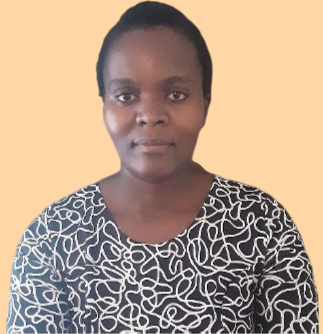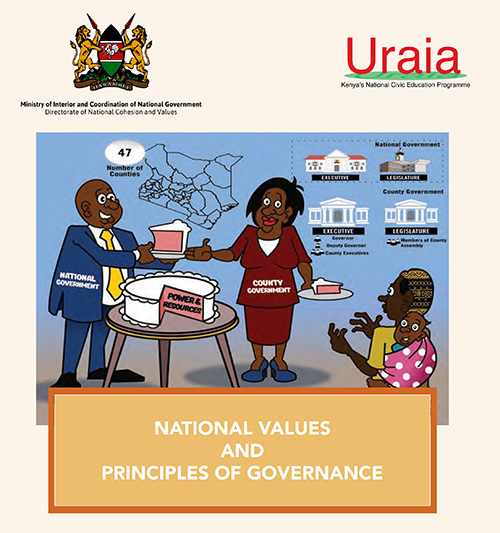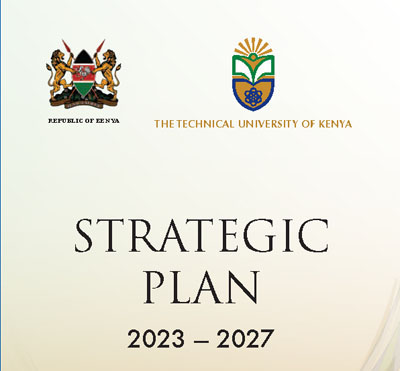Dr. Joan Nyika, a TU-K lecturer in the Department of Physics, Earth and Environmental Sciences, is among the local and international experts that have produced a policy brief titled “Scaling Agroforestry as a Climate Resilience and Food Security Solution in Drylands of Kenya, Uganda and Tanzania.”
The don and other experts drawn from East African Universities and research institutions including Muni University of Uganda; CGIAR; ILRI; UoN, Women for Climate Change Uganda, WENA Bioscience Institute and the Ministry of Natural Resources, Tanzania, were working under the Swedish International Agricultural Network Initiative (SIANI).
The experts focused on the challenges in drylands of East Africa under 4 thematic areas: Climate change and dryland vulnerability; Youth, women and marginalized communities; Policy gaps and implementation challenges; and academic and research perspectives. In this context, agroforestry was fronted as a solution.
Being an expert in hydrobiogeochemistry, Dr Nyika’s role was to assess the water challenges that women in East African drylands face as they try to adopt and implement agroforestry projects. This was in line with some research work, which she was doing together with the University of Johannesburg, South Africa, on the water and wastewater challenges in Sub-Saharan Africa that culminated into the publishing of two books.
Some of the activities the team has executed so far include: writing and the launching of a policy brief whose inauguration was presided over by the Environment and Climate Change Principal Secretary, Dr. Festus Ng’eno as well as conducting field visits in Kenyan drylands. The aim of the activities is to document and publicise the challenges dryland communities face and establish sustainable solutions through agroforestry.
In summary, the policy brief established that East Africa’s drylands are at a crossroads. With 80 per cent of Kenya’s land classified as arid or semi-arid, and 30 per cent of land area in Uganda and Tanzania facing similar challenges, climate change is accelerating land degradation, food insecurity, and conflicts over dwindling resources.
Agroforestry, the intentional integration of trees with crops and livestock, has emerged as a proven strategy to restore ecosystems, boost food production, and build resilience.
The policy brief was launched on 3rd July 2025 by the East African Dryland Agroforestry Expert Group advocating for agroforestry as a transformative solution for East Africa's drylands.
Bridging the policy gap
The policy brief noted that despite its benefits, agroforestry remains underutilised due to fragmented policies and underfunding. For example Kenya’s National Climate Change Action Plan recognizes agroforestry but lacks implementation strategies. Uganda’s National Development Plan III mentions climate-smart agriculture but omits agroforestry-specific funding.
To scale up agroforestry, three steps were identified by the group of experts and documented in the policy brief. These include:
- Research-driven solutions:Invest in dryland-appropriate tree species and water-efficient systems.
- Policy integration:Governments must mainstream agroforestry into agricultural, climate, and land-use policies with clear budgets.
- Farmer empowerment:Strengthen extension services and community-led training networks.
The brief calls for regional collaboration, including the creation of an East African Agroforestry Platform to harmonize efforts across borders. In addition, the policy brief proposes a regional collaboration framework including the creation of an East African Agroforestry Platform to harmonize efforts across borders. It emphasizes the need for dryland-specific research, integrated policy frameworks, and inclusive partnerships.
Five Key Recommendations of the Policy Brief
To unlock agroforestry’s full potential, the policy brief urges action in five areas:
- Strengthen policy frameworks with integrated national strategies.
- Increase funding through dedicated investment windows and incentives.
- Build farmer capacity via extension services and training networks.
- Secure land tenure, especially for women and marginalized groups.
- Foster inclusive partnerships with communities, NGOs, and governments.




